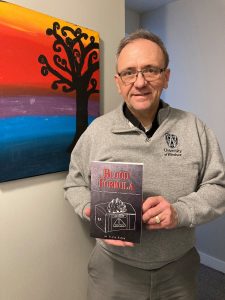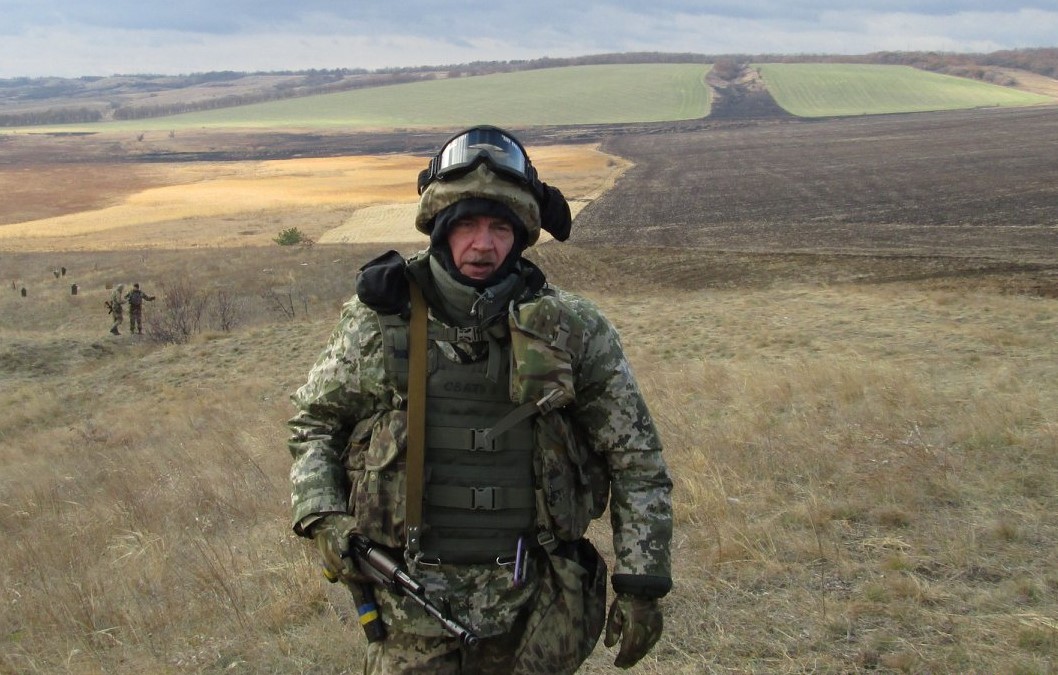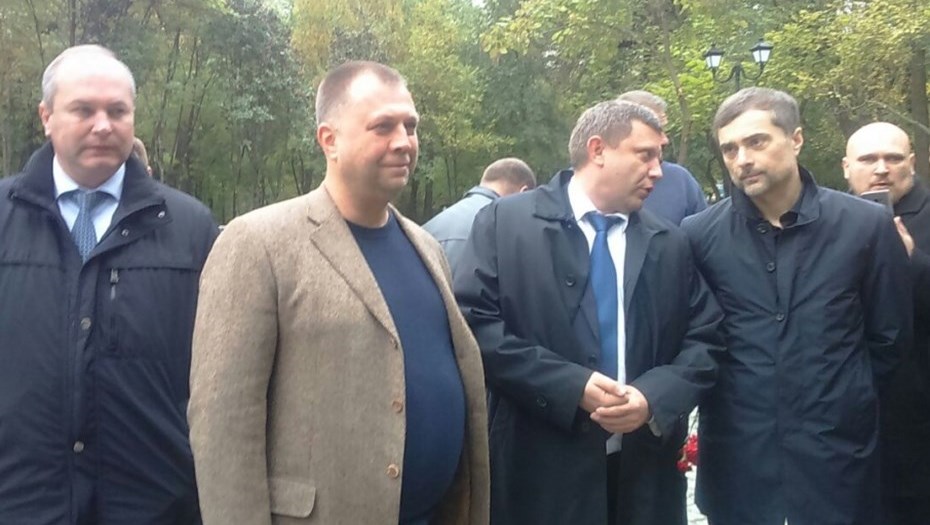His book "Blood formula" tells about what it is like to go to war, and how to find the strength to live on.
Illya Titko, the author of Blood Formula, was a volunteer soldier, serving as Senior Lieutenant in the Ukrainian Armed Forces between 2015 and 2016. In the foreword of the book, Olena Kusmirchuk explains her father’s motivation to write this memoir: “…because all these emotions need some form of expression; otherwise, your memories can destroy you from within.”
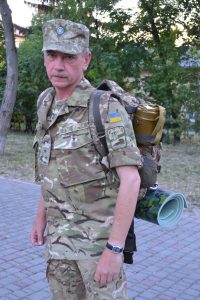
Martin Brest, author of a trilogy on Ukraine’s infantry, writes that Blood Formula is “a hardcover book, and the Ukrainian language style is also hard-hitting”. Brest underlines that the author has an excellent command of Ukrainian, and that the book describes “the extremely difficult thirteen months at the frontlines. When I sit down to read this book, I know I’ll spend the next two or three evenings back in the Donbas.”
There is a universality of experience in Titko’s story. I knew that I had found someone from whom I could learn when Titko attributes his sanity as a volunteer soldier to the discovery and consolidation of one’s roots. When he was afraid to become someone he would later be ashamed of, Titko would engage in an exercise that helped him find a purpose for retaining the authenticity of his humanity:
“I invoked all the experience of earlier generations. It must be there somewhere, hiding within my genes! They are saturated with the mystery of ancestral experience.”
It is this principle of protecting and fostering one’s humanity by remembering and strengthening your identity within your family that enabled Titko to remain disciplined throughout his military service. He describes this breakthrough moment as follows:
“And then, an insight came to mind from my long-gone school days. It was a clear memory of a phrase from Taras Bulba: ‘Ostap had fallen asleep. In the depths of his soul and in all his vulnerability he cried, ‘Father! Where are you? Can you hear me?’ ‘My son, I do hear you!’ This short, powerful image became, for me, a liberating mantra that could pull me out of an immobilizing and treacherous apathy.”
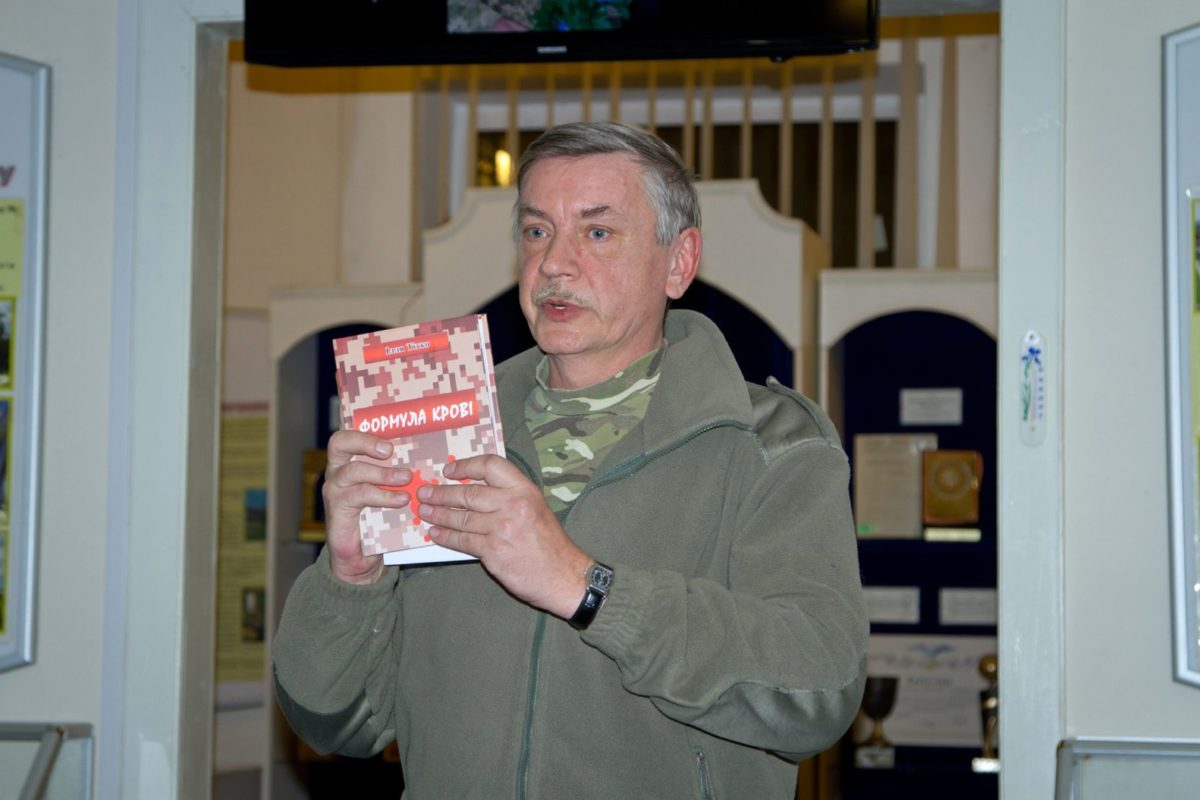
Illya Titko writes that during his months of military service he was able to formulate several fundamental principles, including one related to the value of one’s formative years: “Trust your subconscious experience.”
He states what he learned in a few concise comments:
“There is no turning back when immersed in any situation. Grit your teeth and go forward! You are not alone here. No matter what transpires, you have friends around you. Count on them! All things come to an end, and so will what you are currently facing.”
Illya Titko describes a very emotional experience when he returns to his school in March 2021 for the third annual Ukrainian Forum of Military Writers in Chervonohrad, Lviv Oblast. Reporting in armyinform.com.ua, Volodymyr Skorostetsky writes that Titko was one of thirty authors who were joined by publishers with a military background.
Titko vividly describes the strong feelings he experienced upon returning to a place that he revisited many times in his imagination when he was at the frontlines near Popasna, Luhansk Oblast. These childhood memories gave him the strength and courage to continue living from day to day during his deployment.
“You won’t believe it, but this is the very same school in which I studied so many years ago. In fact, my presentation was in my former classroom. It’s now the school library. I needed a moment to gain control of my emotions before telling the story of my service in one of the motorized infantry brigades, and about my book… It was an incredible feeling.”
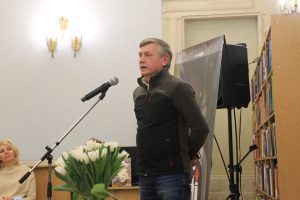
In the introduction, Titko summarizes his reasons for writing the book:
“I needed to write this book so that those, who hadn’t been there personally, could know about these events. I wanted them to know what happened and how it happened to those involved, to the people, to the country, and of course to all the individuals who resolved to walk this same path, namely defend their country.”
When Illya Titko spoke at the forum about his concern for other returning veterans, it reminded me about something my father would mention from time to time, namely how WWI veterans took an interest in him and other recently-returned WWII veterans. They could identify the warning signs that meant stress was about to overwhelm the veteran, usually around anniversary dates of important battles, or getting wounded, or losing fellow soldiers. While the general civilian population impatiently told veterans like my dad to get on with their lives because the war was over, the older veterans took them under their wings, and even found jobs for them.
“I know what it’s like to be here in my body, but my soul is over there,” Titko said to the audience at the forum. He explains this feeling in the epilogue of Blood Formula:
“Say what you will, but “OVER THERE” will always remain a part of me. And perhaps not even the best part of me, but nothing can compensate for what has been lost. My body was moving westward, while my soul remained among the dusty fields and damp ‘green zones’, among the frayed and ruined trees that were split into pieces by artillery fire; damaged shelters, burned-out houses and cellars…in smoky living quarters and ‘skunk holes’. It is there that my soul has remained, desperately insubordinate, unwilling to tear itself away from all that terrible, painful, incredible, truly alive reality… I cannot imagine this wound ever healing. Or that the vivid emotion-filled dreams will ever end. Or that the images of my friends will ever be erased from memory. I am certain that to my dying day that I will harbour this grief. My ‘blood formula’ has been altered. Forever.”
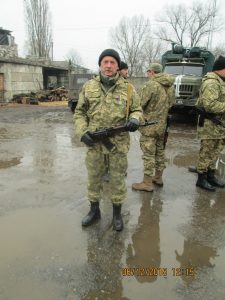
At one point in Blood Formula, Titko asks a rhetorical question: “You might wonder: ‘Why has he written all this?’”
He answers by providing some insight that he has gained about the “acrimonious and violent” aspects of war:
“War is not the ‘ra-ra’ excitement of fiction and movies… War is dirt and pain and suffering and death… War is work, all day, every hour, every minute, even exhausting work. War reveals and brings to the surface all human virtues or vices. It becomes the context within which your sense of what is right becomes your inescapable and absolute victory.”
Blood Formula was written by Illya Titko in 2019 and was recently translated into English by Jeffrey D. Stephaniuk. It was published with a grant from the Ukrainian Canadian Veterans Fund, Shevchenko Foundation, Winnipeg, Manitoba, Canada. It recounts the defence of Popasna, Luhansk Oblast between 2015 - 2016. Illya Titko writes his book from the perspective of a citizen-soldier, a man who continued to maintain one foot firmly in the civilian world, even though his new environment was a war zone, and “war is when your entire world is turned upside down.” Blood Formula is available at www.benchmarkpress.ca.